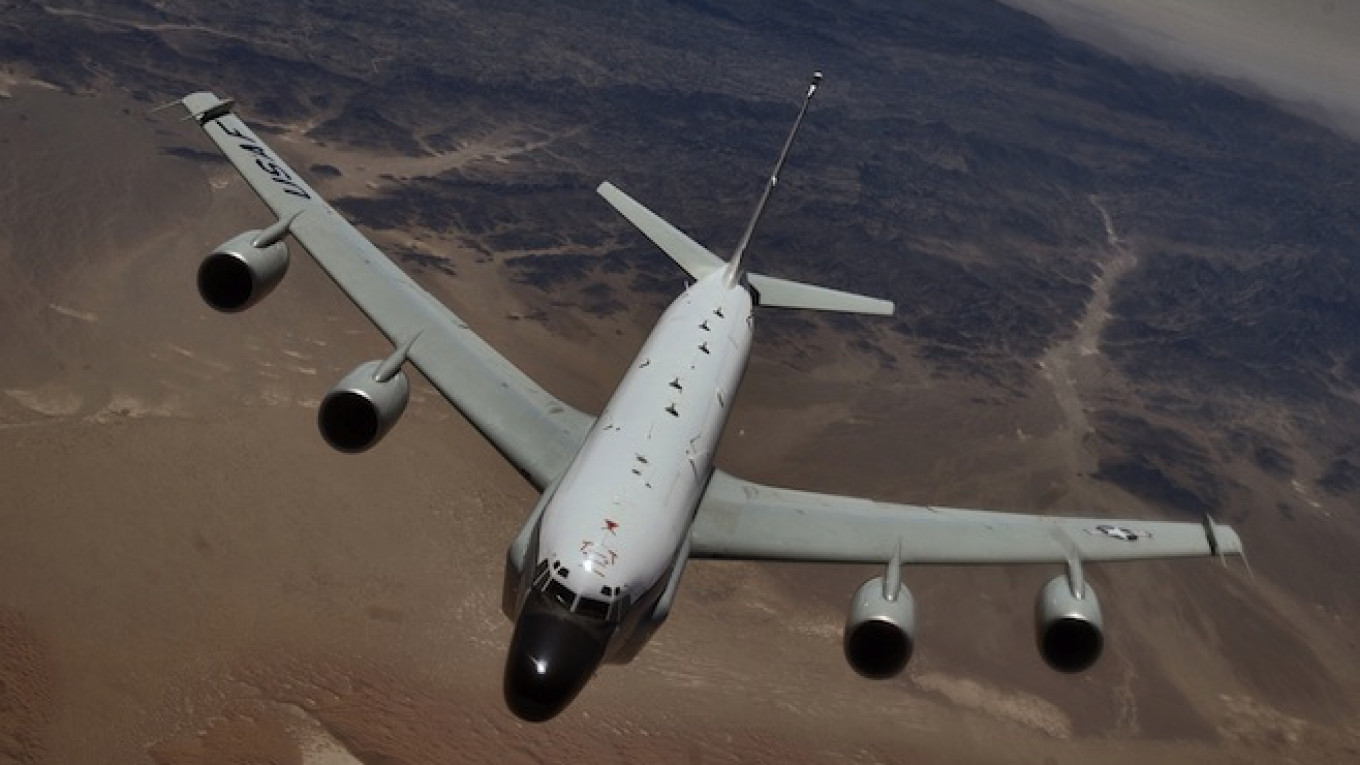A U.S. reconnaissance plane crossed into Swedish airspace last month as it sought to avoid being intercepted by Russian fighters, a news report said, citing U.S. military officials.
The episode occurred on July 18 when Russian aircraft approached an Air Force RC-135 electronic surveillance plane as it was flying in what U.S. officials said was international airspace over the Baltic Sea, the New York Times said.
"The aircraft commander, acting in a professional and safe manner, maneuvered the aircraft to avoid a possible encounter by Russian aircraft," the United States European Command said in a statement, according to the Times.
Ties between the U.S. and Russia have plunged to their lowest level since the end of the Cold War over the crisis in Ukraine, which Washington accuses Moscow of fanning with weapons and support for rebels fighting the Kiev government.
The U.S. has expanded its intelligence-gathering in the region, including reconnaissance missions by RC-135 aircraft, the Times said.
It said that according to Swedish news media, the episode last month occurred as the RC-135 aircraft was flying near Kaliningrad, a heavily militarized Russian enclave between Poland and Lithuania that includes a major port for the Russian Baltic fleet.
After being approached by Russian aircraft, the RC-135 pilot sought to avoid the encounter by maneuvering his aircraft into Swedish airspace, flying over Gotland Island.
Sweden is not a member of NATO, and the European Command said in its statement that the RC-135 had been directed toward Swedish territory "incorrectly by U.S. personnel," the Times reported.
The plane left Swedish airspace after Swedish air traffic controllers informed the aircraft of the mistake, the newspaper said.
See also:
Armed Russian Jet Flew Within 30 Meters of U.S. Plane, Pentagon Says
A Message from The Moscow Times:
Dear readers,
We are facing unprecedented challenges. Russia's Prosecutor General's Office has designated The Moscow Times as an "undesirable" organization, criminalizing our work and putting our staff at risk of prosecution. This follows our earlier unjust labeling as a "foreign agent."
These actions are direct attempts to silence independent journalism in Russia. The authorities claim our work "discredits the decisions of the Russian leadership." We see things differently: we strive to provide accurate, unbiased reporting on Russia.
We, the journalists of The Moscow Times, refuse to be silenced. But to continue our work, we need your help.
Your support, no matter how small, makes a world of difference. If you can, please support us monthly starting from just $2. It's quick to set up, and every contribution makes a significant impact.
By supporting The Moscow Times, you're defending open, independent journalism in the face of repression. Thank you for standing with us.
Remind me later.






